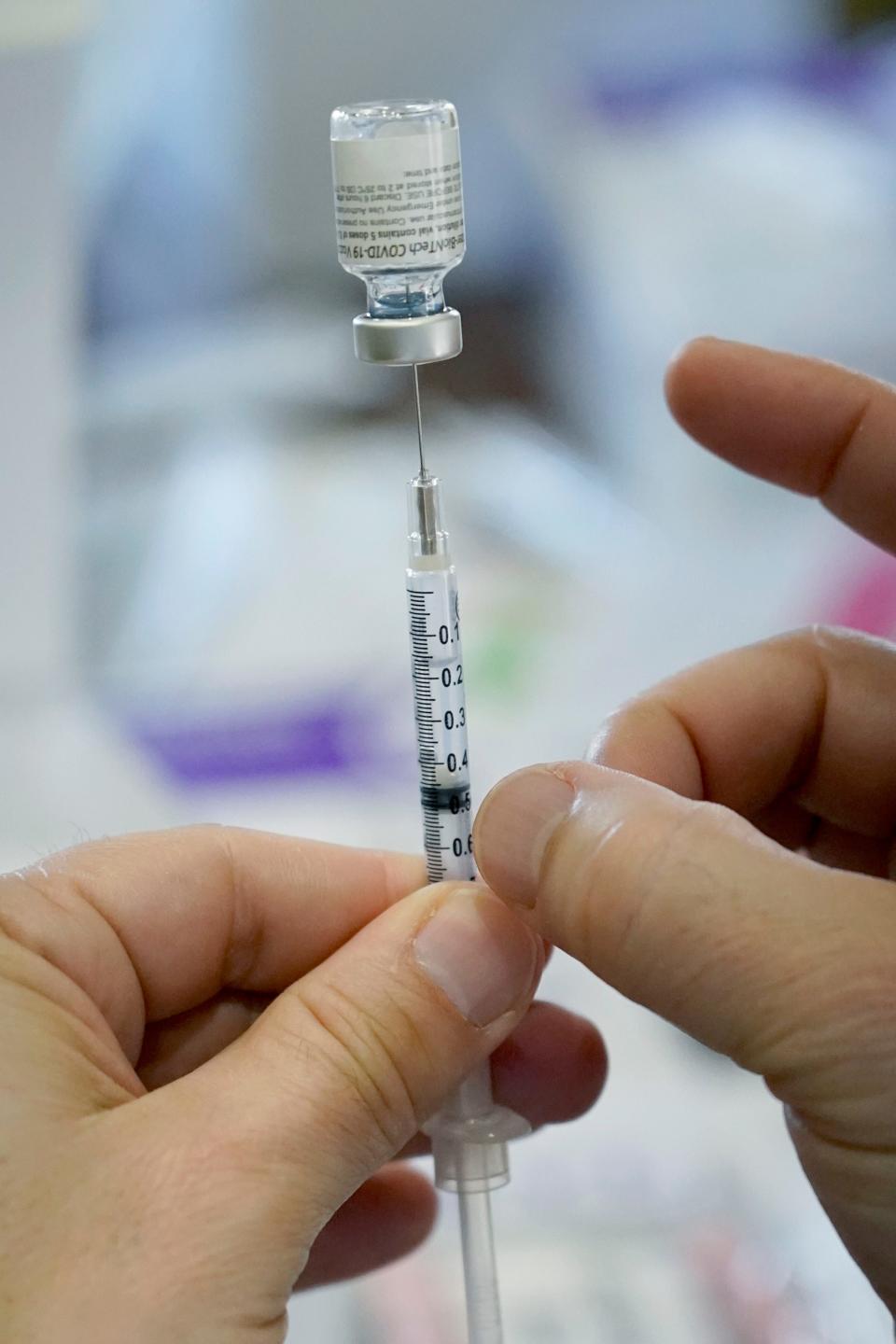Memo to unvaccinated states: Surging COVID-19 isn't a magnet for jobs and investment
“Mississippi. We’re Ready,” says the website for the state’s economic development authority, the folks responsible for luring new businesses to the state. “Don’t Miss Out.”
Indeed, the Magnolia State has two key advantages to offer companies thinking about investing and creating jobs there: the cost of living and the cost of doing business. They're No. 1 and No. 7 respectively, according to a recent CNBC survey ranking the 50 states in terms of overall business attractiveness.
But in every other category – "infrastructure," “life, health & inclusion,” “workforce,” “economy,” “business friendliness,” “access to capital,” technology & innovation” and “education” – the state fares poorly, with an average rank of 40.5.
Put it all together and Mississippi ranks a mediocre 45th out of 50. So if I owned say, XYZ Widget Co. and wanted to build a new plant, there are 44 states that are more attractive than Mississippi. To be fair, only Rhode Island, West Virginia, Maine, Hawaii and Alaska fare worse, according to the business channel's study.
Last place on COVID vaccines
One of CNBC’s categories deserves a closer look: the “life, health & inclusion” category, which reflects crime rates, health care, environmental quality and progress in ending the pandemic.
Here, Mississippi’s refusal to take COVID-19 seriously is causing damage. According to the latest Mayo Clinic data, it ranks dead last in the percentage of its citizens – 38.6% – who have gotten at least one shot of the vaccine. But I don’t want to pick too much on Mississippi, because it has some company. In 15 other states, under 50% of citizens have gotten at least one shot of a vaccine.
These aren’t abstract data points. They represent human lives. States below the 50% vaccination threshold level are the same states that are bearing the brunt of the delta variant-driven upsurge in cases, according to data from the Centers for Disease Control and Prevention. It’s not exactly difficult to connect the dots here.

I’ve written before that opposition to vaccines is generally concentrated in red states. You know, pro-life states, where, you know, every life is precious. Every life is precious! To the anti-maskers, the anti-vaxxers clinging to this reed of selfishness and irresponsibility, I say go look in the mirror. That way you can admire yourself all day long, since you’re the only person you seem to care about.
Meanwhile, here’s a question for business development folks in these states. If you came to me, the big cheese at XYZ Widget Co., and said “Hey, we understand you’re looking to expand, we hope you’ll consider coming here,” one of the questions I’d now ask, in addition to everything else, is:
“The data shows your workforce isn’t very safe. Vaccinations lag behind most of the country. Many of your lawmakers have spent months talking down the pandemic and urging people to exercise their individual rights and personal freedoms, even if that places their fellow citizens at greater risk.
Air travel first: We need COVID-19 mandates to reach herd immunity. Start by requiring vaccine proof to fly.
"Tell me why I should come here and hire a workforce that isn’t taking care of itself. A workforce that places itself – and thus my precious investment capital – at greater risk. There are dozens of other states that are better."
It’s hard enough starting a business, keeping it going, expanding, making payroll, dealing with suppliers, customers and all the rest without having to worry about whether half my workers are going to end up in the hospital, or worse, because they refuse to get a simple shot. My answer here would be to require employees to show proof of vaccination – and to offer shots to those who need them.
Why bet on selfish, unvaxxed workers?
Of course, this might slow hiring or turn off potential workers – factors that would drive up my business costs. All other considerations aside, why should I take my chances on an unstable, selfish workforce when I can get eager, vaxxed workers elsewhere?
To be fair, there are outliers to CNBC’s list. Texas isn’t doing too well on vaccinations, either – just 50.8% of adults have gotten at least one shot – yet it ranks as the fourth-best place to do business. It’s easy to see why: The Lone Star State ranks No. 1 in the workforce category. But here’s the disconnect: Texas ranks near the bottom of the barrel – 49th – in the “life, health & inclusion” category.
Mandates are the answer: Private companies must require vaccines for workers. It's the only way to get past COVID.
Again: crime, health care, the environment and the pandemic. To be No. 1 in workforce, Texas has made a deal with the devil on these important quality of life measures. It’s only a matter of time before that top-ranked workforce starts getting dragged down thanks to crime, bad health care and polluted air and water.
These are reputational issues. States with an unhealthy, at-risk labor force will have more trouble attracting capital in the future than competing states. A healthy, stable workforce will correlate with long-term business returns. Which side do states want to be on?
Paul Brandus is the founder and White House bureau chief of West Wing Reports and a member of USA TODAY's Board of Contributors. His latest book is "Jackie: Her Transformation from First Lady to Jackie O." Follow him on Twitter: @WestWingReport
You can read diverse opinions from our Board of Contributors and other writers on the Opinion front page, on Twitter @usatodayopinion and in our daily Opinion newsletter. To respond to a column, submit a comment to letters@usatoday.com.
This article originally appeared on USA TODAY: COVID-wracked, low-vaccine states are bad for jobs, business investment

 Yahoo Movies
Yahoo Movies 